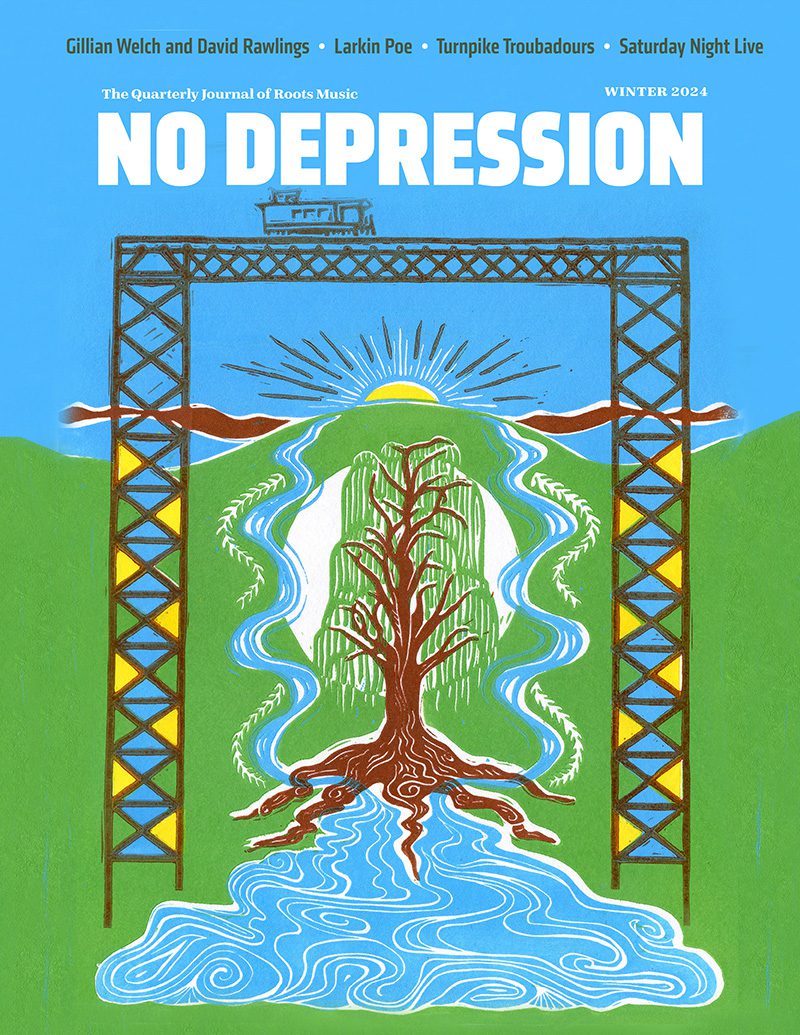Last Night @ South By Southwest: Taking the Lost Highway w Lucinda, Ryan, Hayes, et al
South By Southwest
Missive 7
Take The Lost Highway…
Lucinda Williams stands onstage, talking about her new record Blessed. True to her to the bone songwriting, there are no flourishes necessary for Williams to get her passion across.
Like an Arkansas Chrissie Hynde, there’s a brutality to her lyrics that buckles the knees. With a voice that’s barbed wire tough at times, sobbing lost soul wail at others, Lucinda Williams is the essence of emotion – and that essentialism defines her enduring rock poetry strung across basic roots arrangements.
From the first downbeat of the sauntering “Buttercup,” Williams taunting rejoinder to a fickle former paramour, the band took command. Moving between the forceful slow rockers and the aching balladry of songs like “Drunken Angel” and “Pineola,” the power of the Grammy-winning songstress lies in the way she can straddle being out of control, being enraged and being almost crippled by sorrow.
Yet it’s on songs like the hesitating ”Born To Be Loved,” a bluesy rumination of the grace we are born with, and “Convince Me,” where she’s almost playful in her flirtation, that the sparkle of her gift shines brightest. It is not a dour thing, but more something luminous and empowering.
That empowerment has been an earmark of Lost Highway, the label Williams’ and many other iconoclastic writer/artists call home.
A decade ago, Luke Lewis, the head of Mercury Nashville, was frustrated. A power player in mainstream country, he saw so many acts he loved that didn’t work in the radio-driven paradigm of a major Nashville record company. It bothered him.
While most people live with the frustration, choke it down and learn to ignore it, with the shrugging “Just the way it is,” Luke Lewis has always refused to accept what made no sense…
There had to be a way. So from his music-centricity, Lost Highway emerged. It was a label that has been home to Willie Nelson, Ryan Adams, Elvis Costello, Van Morrison and many other premiere talents whose music would be destroyed by the conveyor belt demands.
For this night in Austin, Texas – a celebration of ten years of putting out strong music sensitively and realistically marketed, the riches of the roster were on full display. While Williams – who’d just released her latest record – was clearly the crown jewel, each artist appearing on the line-up had their own special shine.
Ryan Bingham, the once homeless, former rodeo rider championed by Texas artist/legends Terry Allen and Joe Ely, took the stage for a set of rock that was lean as he was. Driving, pumping, but never drowning his intentions in the arrangements, the Oscar/Golden Globe/Grammy winner – for “The Weary Kind” from “Crazy Heart” – showed he was so much more than his song from the film about a busted down country star who never quite got there.
Hayes Carll mines that same long-limbed, slow talking masculinity. A classic Austin singer/songwriter/rogue poet, Carll’s songs move from wry and witty to hell bent and kerfuffled, and yes, even pained.
Rhythms attenuated, beats elongated and electric guitar notes dripping over the melodies – wide open and kerosene-soaked, his palette is vast. Still, it is the quietly combustible stuff, made all the more dangerous by the busted nature of lives teetering at the brink. “Grand Parade,” which Carll opened with, has that shaky notion of considering that friend who didn’t make it – what it took to tumble over the edge, to not come back and how it feels to be the one left behind.
Dan Tyminski, the voice of the Earth’s molten center, played a quick set of minor keyed songs and a ramped up “Man of Constant Sorrow,” the bluegrass classic he stunt-sang for George Clooney in “Oh Brother! Where Art Thou?” Songwriter/bluegrass is his milieu – and if the set wasn’t long enough to demonstrate a clear vision, there was no doubt about the timber of his voice or willingness to sing from his heart.
Black Joe Lewis & the Honeybears got the other way: an old school r&b review shot through with some fairly serious funk, the hybrid r&b show band is merged with a jam-feeling group of players who’re looking to root in something a little more on the soul side.
Almost a roots Was (Not Was) sans the jazz and odd lyricism, the bawdy nature of the songs offers a fleshly respite from the evenings more serious tenor. Even Carll’s “One Bed, Two Girls, Three Bottles of Wine” seemed more innocent compared to the roof shaking, harmony howling vocals and demi-synchronized dance steps.
It is that ability to recognize the stand out in what could so easily be dismissed as one more quirky songwriter, tortured soul, bluegrass singer or soul show band that has made Lost Highway more than a museum for songwriters known to legends and not having much audience. To be dynamic, it’s about the present and even the future – and that’s the one place the Lost Highway seems destined to lead and champion, even if the Gaga numbers aren’t there.


